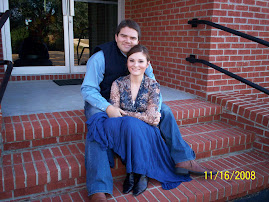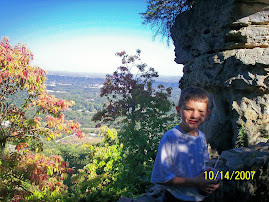In Conley's chapter 11 of the text, he talks about the importance of writing! Writing demonstrates understanding, which leads to deeper levels of comprehension, evaluation and analysis. The development of one's writing enables the "writer" to "see" his/her improvements and accomplishments. It also allows for the writer or "composer" (on a musical note) to see where changes, edits, deletes, etc. should be made. Writing allows for SHARING IDEAS and THOUGHTS, BELIEFS and OPINIONS. Without the apparent uses and everyday needs of writing, we would live our lives with much more stress and worry. "If in all God's wondrous created beauty, one cannot find a reason, meaning, or purpose to write, what's the point?"-quote from me.
As all of us are aware, there are many forms/types of writing. We technically use them everyday. For my lesson today at South Forrest, I asked my student to create and write an invitation to a birthday party-informational text! He really seemed to enjoy it! Observing in too many schools, I've seen the routine of copying! "Copy this and copy that... and when you're finished, copy this too!" I bet these children could copy board work with their eyes closed! I think that writing should be more than just "wrote memorization"... That does make some sense, doesn't it?
Teachers should teach their students how to become strategic writers (Conley's text-pg.312 @ bottom of page). Modeling should take place, guided practice should follow, and gradual releases (from the teacher) after that. Of course, this can take days, weeks, months. But helping your students to "get their feet wet" will allow them to later establish themselves as strategically proficient writers. Students should be taught to manage and monitor their own work/writing. Quick Writes are great for scaffolding young novice writers. Most children love the idea of a quick write & they're very easy to incorporate in any classroom. Asking students to keep Learning Logs are also great tools of suggestion to help "grow" beautiful writers. Basically, the possibilities are endless and this chapter opened up my eyes, even more, regarding developing writers!
Monday, March 30, 2009
Monday, March 9, 2009
Chapter 8- Were We Supposed To Do This One? On Blogger??
Chapter 8-Building Vocabulary Knowledge and Strategies... and Beyond (Just Kidding)
Technical vocabulary... Sounds tough doesn't it? Usually, when there's a difficulty, it's a technical one. Right? Well, not exactly. Not all the time. Technical vocabulary simply means unknown words. Conley suggests that these technical "babies" are often the center of attention when teachers think about and regard "traditional" vocabulary teaching and instruction. Hmm... Do continue.
There are many different ways of knowing and understanding words. All students are brought into the school systems with some sort of vocabulary background. These pre-determined and already learned and established words are known as well-established words. On the other hand, just acquainted words remind me of just that... An acquaintance; a person yelling out an occasional "Hi" or a spontaneous wave of the arm when seen. Students are only familiar with these just acquainted words . They have yet to discover its meanings.
Gosh, I feel so repetitive... Teachers should base instruction on the emphasis of making personal connections with the individual student. While reading the chapter, I found out where to begin with vocab instruction . The List-Group-Label is an interesting method. It enables students to see and make connections with unfamiliar vocabulary. Semantic Mapping is also a great method used. I used/incorporated concept cards in my lesson at South Forrest. The student I'm tutoring was unfamiliar with the 3 vocabulary words I chose from the narrative we read during today's lesson. On a piece of construction paper, he wrote out the words and definitions from the dictionary. Then, he created his own sentence using the vocab words. We ran out of time, so he didn't' get to draw a picture of the word. Other than the time issue,I think it worked rather well and proved successful.
Technical vocabulary... Sounds tough doesn't it? Usually, when there's a difficulty, it's a technical one. Right? Well, not exactly. Not all the time. Technical vocabulary simply means unknown words. Conley suggests that these technical "babies" are often the center of attention when teachers think about and regard "traditional" vocabulary teaching and instruction. Hmm... Do continue.
There are many different ways of knowing and understanding words. All students are brought into the school systems with some sort of vocabulary background. These pre-determined and already learned and established words are known as well-established words. On the other hand, just acquainted words remind me of just that... An acquaintance; a person yelling out an occasional "Hi" or a spontaneous wave of the arm when seen. Students are only familiar with these just acquainted words . They have yet to discover its meanings.
Gosh, I feel so repetitive... Teachers should base instruction on the emphasis of making personal connections with the individual student. While reading the chapter, I found out where to begin with vocab instruction . The List-Group-Label is an interesting method. It enables students to see and make connections with unfamiliar vocabulary. Semantic Mapping is also a great method used. I used/incorporated concept cards in my lesson at South Forrest. The student I'm tutoring was unfamiliar with the 3 vocabulary words I chose from the narrative we read during today's lesson. On a piece of construction paper, he wrote out the words and definitions from the dictionary. Then, he created his own sentence using the vocab words. We ran out of time, so he didn't' get to draw a picture of the word. Other than the time issue,I think it worked rather well and proved successful.
Tuesday, March 3, 2009
Smart Board/Promethean (did I spell that right?) Experience
To be quite honest, I have had very limited experience with the Smart Board and Promethean Boards. Last semester in Dr. Foxworth's class, we briefly talked about the Promethean board. A lady came in and lectured on it for about 45 min to an hour.. I've never really had any hands-on experiences with these tools of technology. I have seen them at South Forrest Attendance Center this semester. Some teachers solely rely on them (not good), while others rarely turn them on (not good). Where's the balance on this thing?
Monday, March 2, 2009
Chapter 7- Activating Prior Knowledge & Increasing Motivation
All students are cognizant and mentally specialized, if I may, in select areas of intelligence of some sort. For example, students may be experts in areas ranging from sports(baseball, hockey, stick ball, etc.) to academics (mathematics, English, etc). All children (and adults) have mental file folders entitled: prior knowledge or schema (a fave word from intermediate block). Some folders may be jam-packed and overloaded with data,memories,experiences,faces and places. Where as others may be new, bright, crisp yellow folders still enveloped in its clear Saran wrap-like packaging. Pardon the analogy.
There is nothing more challenging than a student who is unmotivated. Not only is he/she paving his/her way toward educational injustice and voluntary neglect, he/she is also making the teacher's job twice as hard. Unmotivated students are the hardest to teach and instruct, simply due to their lack of motivation and "drive". What's a teacher to do??? Answer: Activate their prior knowledge! Find out what interests your students. Make connections. Give an interest inventory. Take a classroom poll on who likes this and who likes that. Allow them to verbalize their interests to you and the class. Get them involved. Develop a sense of classroom community.
Students are always more likely to stay engaged in something they find interesting and/or something they already know about. Encourage students to pull out those file folders that are tucked away in the many crevices of their brains. Teachers can help students "open" and activate these "file folders" by providing many different techniques and strategies. Anticipation guides are a great tool for this. However, as with any technique/strategy DO NOT OVER KILL IT! Using one tech/strat will weaken the effectiveness of any lesson/concept/idea. Pre-Reading Plans (PREP)also activate prior knowledge. The K-W-L is one of my favorites. I won't OVER KILL IT, I promise. I like the K-W-L (Know, Want to know, Learned) because it provides the student with a written visual of what they already know regarding a topic, what they want/hope to learn regarding a topic, and what they learned afterwards regarding a topic.
As with every aspect of education, teachers should remember to remain patient, as hard as it may be at times, with their students. Teachers need to be encouraging and visibly passionate regarding all students' success. They should possess a caring attitude. They should set high yet realistic goals and expect high yet realistic outcomes. Sound impossible??? Trust me... It's not.
There is nothing more challenging than a student who is unmotivated. Not only is he/she paving his/her way toward educational injustice and voluntary neglect, he/she is also making the teacher's job twice as hard. Unmotivated students are the hardest to teach and instruct, simply due to their lack of motivation and "drive". What's a teacher to do??? Answer: Activate their prior knowledge! Find out what interests your students. Make connections. Give an interest inventory. Take a classroom poll on who likes this and who likes that. Allow them to verbalize their interests to you and the class. Get them involved. Develop a sense of classroom community.
Students are always more likely to stay engaged in something they find interesting and/or something they already know about. Encourage students to pull out those file folders that are tucked away in the many crevices of their brains. Teachers can help students "open" and activate these "file folders" by providing many different techniques and strategies. Anticipation guides are a great tool for this. However, as with any technique/strategy DO NOT OVER KILL IT! Using one tech/strat will weaken the effectiveness of any lesson/concept/idea. Pre-Reading Plans (PREP)also activate prior knowledge. The K-W-L is one of my favorites. I won't OVER KILL IT, I promise. I like the K-W-L (Know, Want to know, Learned) because it provides the student with a written visual of what they already know regarding a topic, what they want/hope to learn regarding a topic, and what they learned afterwards regarding a topic.
As with every aspect of education, teachers should remember to remain patient, as hard as it may be at times, with their students. Teachers need to be encouraging and visibly passionate regarding all students' success. They should possess a caring attitude. They should set high yet realistic goals and expect high yet realistic outcomes. Sound impossible??? Trust me... It's not.
Subscribe to:
Comments (Atom)
.jpg)
.jpg)
.jpg)